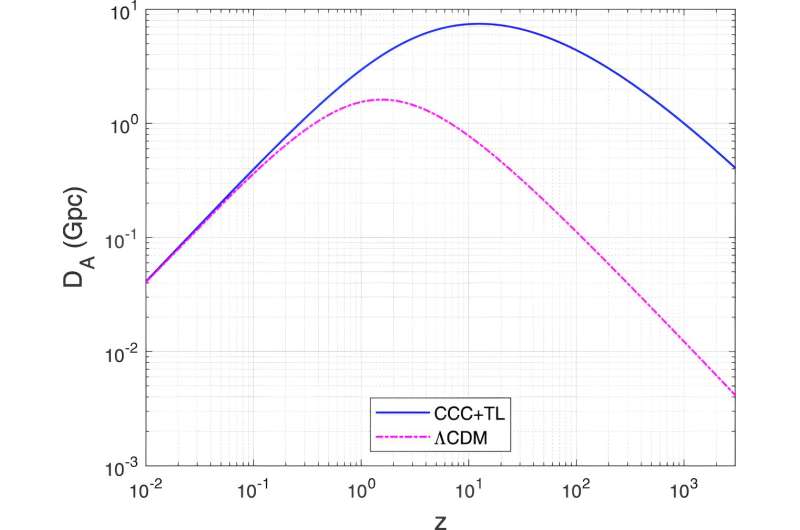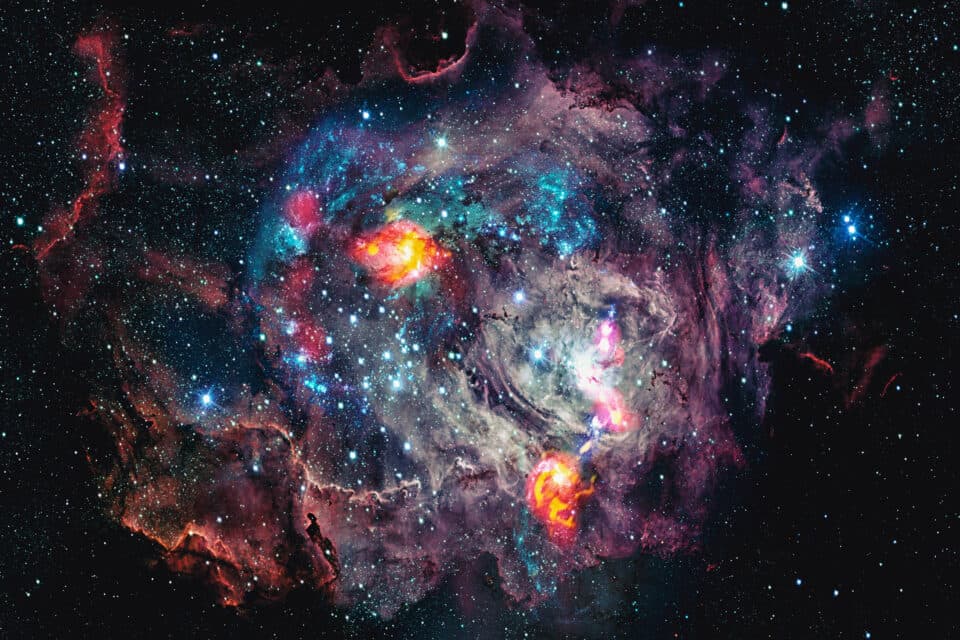No one thinks that all of physics, or cosmology, is solved; the reigning problems in cosmology include contradictory conclusions about the age of the universe, and the nature of “dark matter” and “dark energy,” both terms being placeholders for unknown quantities needed to explain first, the amount of gravity in the universe, given observations of attraction among distant galaxies, and second, why the universe is expanding faster than expected.

This story has been floating around for a week or two, in various venues, to the point where it’s worth mentioning here. (A lot of radical ideas are put forth, many in pop venues, that gain no traction, and which therefore I don’t mention here.)
Phys.org, 15 Mar 2024: New research suggests that our universe has no dark matter
(Phys.org is, according to Wikipedia, a science new aggregator; this particular story comes from The Astrophysical Journal.)
The current theoretical model for the composition of the universe is that it’s made of normal matter, dark energy and dark matter. A new University of Ottawa study challenges this.
A study, published today in The Astrophysical Journal, challenges the current model of the universe by showing that, in fact, it has no room for dark matter.
In cosmology, the term “dark matter” describes all that appears not to interact with light or the electromagnetic field, or that can only be explained through gravitational force. We can’t see it, nor do we know what it’s made of, but it helps us understand how galaxies, planets and stars behave.
So in what way does this mean that the scientists have been wrong? Yet again, as science skeptics would ask?
They may have been wrong only in interpretation, not in observation, and ‘wrong’ because they have so far been cautious in the way they have done that interpretation. You don’t propose radical reinterpretation of accepted theory lightly. The proposal from the University of Ottawa suggests that two ideas, long floated but so-far dismissed, might explain the observations that suggested the idea of dark matter in the first place. Namely: that some of the cosmic constants, including the speed of light, may have changed over cosmic history.
This model combines two ideas—about how the forces of nature decrease over cosmic time and about light losing energy when it travels a long distance. It’s been tested and has been shown to match up with several observations, such as about how galaxies are spread out and how light from the early universe has evolved.
Until now, there’s been no reason to suppose that these cosmic constants have ever changed. Everywhere we look in the universe, objects seem to behave according to the same laws of physics that we can observe locally, in physics labs on Earth.
“In standard cosmology, the accelerated expansion of the universe is said to be caused by dark energy but is in fact due to the weakening forces of nature as it expands, not due to dark energy.”
So, this is revolutionary, if it stands up. This is how science works, and has worked: it is able to overturn old assumptions with new data, or new interpretations, and gradually close in on a greater understanding of the universe we live in.
\\
And this piece suggests that this re-interpretation of data implies that the universe is 27 billion years old (not 14.3 billion, the current consensus).

Earth.com, 15 Mar 2024: Study: Dark matter does not exist and the universe is 27 billion years old
“The study’s findings confirm our previous work, which suggested that the universe is 26.7 billion years old, negating the necessity for dark matter’s existence,” Gupta explains.
“Contrary to standard cosmological theories where the accelerated expansion of the universe is attributed to dark energy, our findings indicate that this expansion is due to the weakening forces of nature, not dark energy,” he continued.
\\
Such a radical change in the conclusions about the history of the universe? Sure. But that’s what scientists do — they continually re-examine previous conclusions, and change their minds, as new evidence or new interpretations appear. There have been revolutions in scientific thinking for centuries, ever since Copernicus, and Galileo. (The anti-science forces *never* change their minds.)
It’s thrilling to think that we still live in an age in which basic scientific discoveries are still being made.





